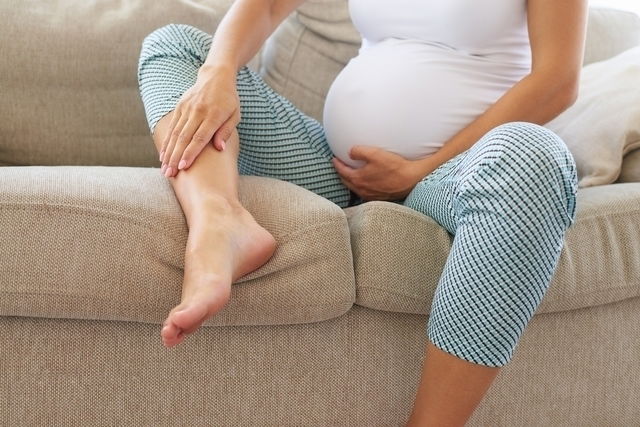Even though low belly pain is something most expectant mothers worry about, it is usually not a sign of any serious problem. This pain is typically related to the body making room for the baby to grow, which is especially true when it is felt during the first weeks of pregnancy.
However, if the pain is very intense or it occurs with other symptoms such as loss of fluid through the vagina, fever, chills, and/or headaches, it can indicate serious situations, such as an ectopic pregnancy.
Therefore, if you notice other symptoms in addition to your lower belly pain, or if you suspect more serious problem, you should seek medical attention to identify the cause and start the appropriate treatment.

Here is a list of the most common causes for low belly pain during pregnancy:
1. Normal pregnancy progression
Low belly pain is a very common symptoms during the first weeks of pregnancy and it happens due to the expansion of the womb and displacement of the abdominal organs in order to make room for the growing baby. It is common for the expectant mother to feel a slight discomfort or a mild temporary pain in the lower belly during this time of rapid growth.
What to do: Because this is considered to be a normal type of pain that is associated with the progression of pregnancy, no treatment is needed. Continue to see your doctor for regular prenatal follow-ups for monitoring.
2. Braxton-Hicks contractions
Contractions in the second trimester of pregnancy, known as Braxton-Hicks, can also be an important cause of low belly pain. Each contraction is light and lasts a maximum of 60 seconds.
What to do: These contractions are not serious and normally resolve within a minute, therefore there is no reason to worry. If you start having very regular Braxton Hicks, you are advised to follow-up with your doctor for assessment,
3. Ectopic pregnancy
An ectopic pregnancy can also cause low belly pain. Ectopic pregnancies happen when the embryo implants outside of the uterus, usually in the fallopian tubes. In addition to lower belly pain, which can be very intense, there is usually vaginal blood loss, as well as other symptoms such as a swollen abdomen. Learn more about the symptoms of an ectopic pregnancy.
What to do: If you suspect you have an ectopic pregnancy, it's important to see your doctor or proceed to the emergency room for assessment, diagnosis and treatment.. Treatment will vary according to where the embryo is implanted and the pregnancy stage.
Usually, the treatment for the ectopic pregnancy is done through medication that will abort the pregnancy, or surgery to remove the embryo and reconstruct the uterine tubes. These treatments are necessary because ectopic pregnancies can be life-threatening.
4. Miscarriage
When lower belly pain is related to a miscarriage, the pain usually happens in the first trimester of pregnancy. It is often very intense and it occurs with other signs and symptoms, such as fever, loss of fluids through the vagina, bleeding, and constant headache.
What to do: If this happens, proceed to the hospital for assessment of the fetal heartbeat. The doctor will assess your status and proceed with the most adequate treatment.
When to go to the hospital
You are advised to seek immediate medical attention if you experience:
- Intense or regular lower belly pain;
- Other symptoms such as headache, chills, fever or bleeding.
These symptoms are usually indicative of serious health changes that require assessment and treatment as soon as possible to prevent complications for the mother and/or the baby.






























